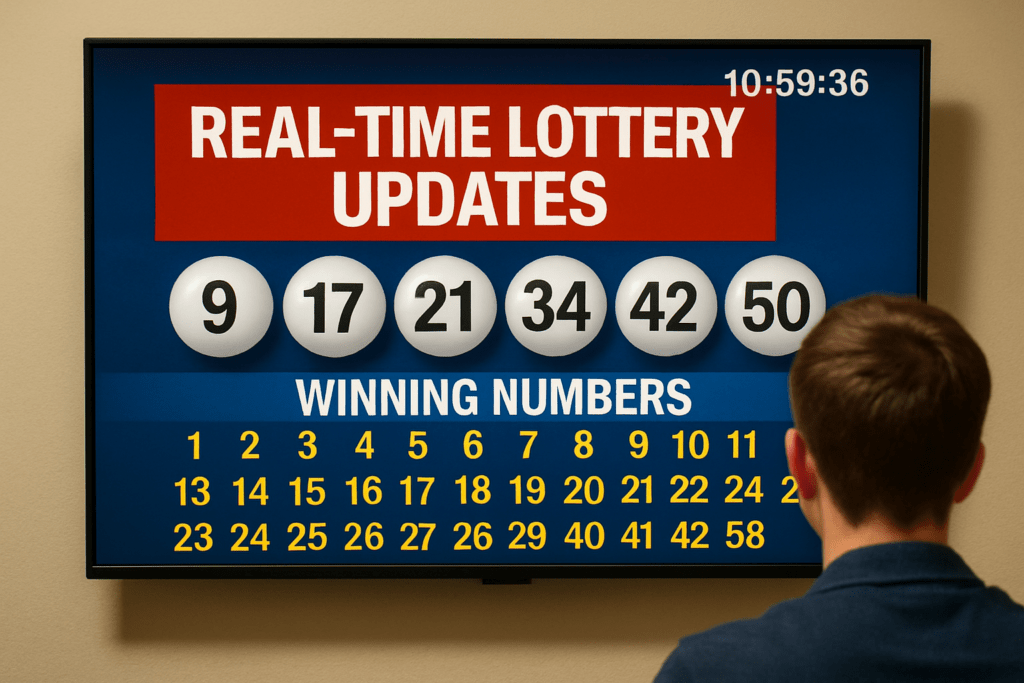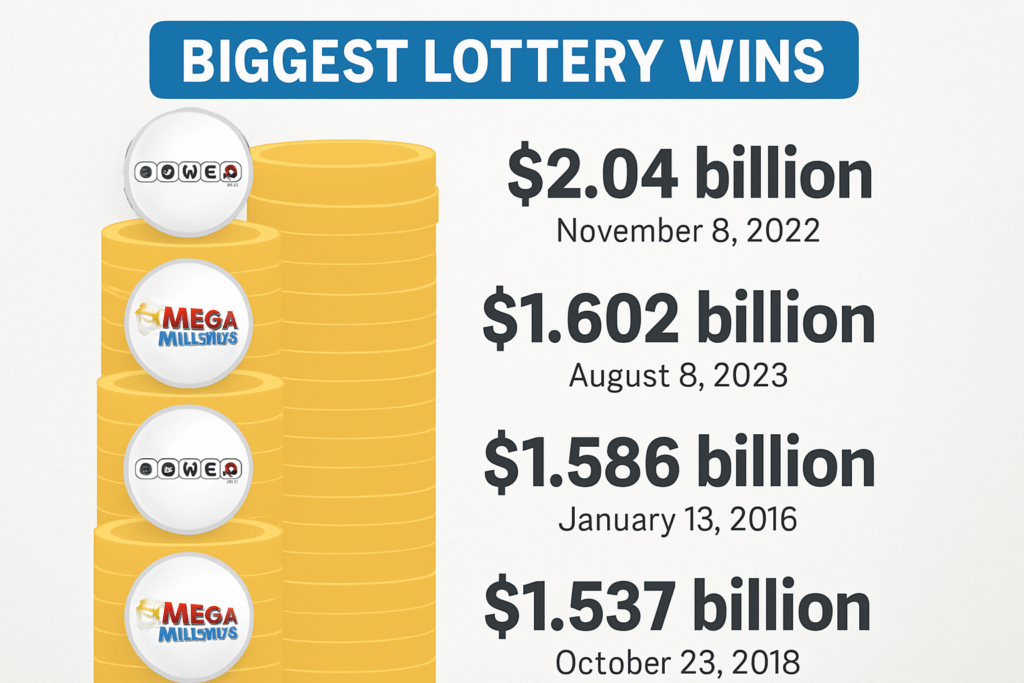Decoding Lottery Draw Results: What the Numbers Say
- Winning the lottery isn’t just about luck—there’s a method to understanding the numbers.
- Most people glance at the winning digits and move on, but lottery draw numbers can reveal patterns, frequencies, and even regional trends.
- This article cuts through flashy theories to give you a spartan rundown on how to decode what the numbers are saying.
Decoding Lottery Draw Results: What the Numbers Say
Let’s get one thing straight: winning the lottery is mostly luck—no magic formulas, charm bracelets, or decoding ancient math. But if you want to understand why lottery results have become such a magnetic mystery, you’ve got to look at what the numbers are actually telling you.
Most folks check if they’ve hit the jackpot, sigh, and toss the ticket. End of story. But here’s a secret: those strings of numbers aren’t just random blips; over time, they start to stack up in interesting ways. Patterns. Frequencies. Clusters. Sometimes, local trends pop up—maybe a certain combo hits more often for one state than another, or a run of “unlucky” draws gets people talking.
Forget all the flashy systems that promise you a surefire win. This article keeps things barebones. We’re unpacking the basics: how draw results are generated, what makes a number “hot” or “cold,” and why people see secret meanings where there probably aren’t any. In short, your crash course in seeing past the chaos and reading what the numbers are actually saying—no nonsense, no frills.
Why Lottery Draw Numbers Matter
Here’s the thing: most people stare at their ticket, compare it to the published draw, and toss it if there’s no match. End of story. But that set of numbers is more than a one-off result—it’s part of a long, ongoing sequence that says a lot if you pay attention. Tracking lottery draw numbers isn’t some get-rich-quick tactic, but it does clue you in on how the game really plays out over time.
So why do certain numbers keep cropping up? Is it just chance, or is there something more? The short answer: luck’s still the top dog, but repeated appearances aren’t always pure coincidence. A number that hits often might be a statistical blip, or a sign that the draw’s randomness is delivering small, normal quirks. Dig into those “hot” numbers and you’ll find they often even out eventually—but for a stretch, they’ll keep showing up at the party.
Bottom line, focusing on lottery draw numbers gives players something a little better than blind hope: insight. You won’t beat the odds, but you can understand them. That makes the stretch between draws a bit more interesting if nothing else—and could spark a fresh look at the way you play.
What Happens After Winning Millions?
Winning a life-changing lottery jackpot is every player’s dream, but few are prepared for what comes next. The sudden influx of wealth can bring excitement but also a wave of challenges. Many winners find themselves overwhelmed by financial decisions.
Handling the Financial Windfall
Winners face several key concerns:
- Managing Taxes – A significant portion of the winnings is taken by taxes. Proper planning is crucial to avoid unexpected liabilities.
- Investment Decisions – Hiring financial advisors can help secure a stable future, while reckless spending often leads to a quick depletion of funds.
- Long-term Planning – Without a strategic approach, even vast fortunes can disappear rapidly.
Adjusting Lifestyles
Lifestyle changes occur almost immediately after winning:
- Luxury Purchases – Instant access to luxury homes, exotic cars, and lavish vacations.
- Social Dynamics – Friends and distant relatives may surface, seeking a share in the fortune, creating difficult social and financial choices.
- Privacy Concerns – Winners must navigate increased scrutiny and the challenge of maintaining privacy.
Some winners opt for a low-profile lifestyle to avoid the pressures of sudden wealth.
Giving Back
Many winners choose to make a positive impact with their fortune:
- Charitable Foundations – Establishing or funding charities and community projects.
- Educational Contributions – Providing scholarships or educational funding.
- Community Investments – Revitalizing local businesses or initiating projects to support struggling towns.
These acts of giving back and responsible management dictate not only the winner’s future but also the legacy they leave behind. Different paths show that wealth can be both a personal luxury and a force for positive change, although mishandling can lead to financial downfall.
Number Result Analysis: Is There a Secret Code?
Let’s get real about “number result analysis.” Every time those lottery balls drop, folks scramble to spot patterns—hot numbers, cold numbers, last week’s winner in a new costume. That’s the gambler’s itch: to believe there’s a code. The truth is more spartan. Analyzing these numbers is about tracking frequency and waiting for quirks to show up. Hot numbers? They’re just digits that’ve been picked more often, recently. Cold numbers got left in the dust for a while. But does it mean they’re due or overdue? Not really—the odds reset with each draw, no memory, no mercy.
Still, pattern-seeking is hardwired into us. People map out winning draws, grab a calendar, highlight seasonal surges, see seasonal trends in lottery outcomes, and try to ride the perceived wave. But every draw is a new coin flip, not a chapter in an epic. The numbers themselves? They’re stubbornly random, but your analysis—if it keeps you interested and grounded—has value. Just don’t go betting the farm because 23 hasn’t come up in a while. The “secret code” isn’t in the numbers; it’s in the stats, and in how you handle the slim odds. Analyze for fun and insight, not guarantees.
Understanding the whirlwind of emotions, decisions, and changes after winning millions is crucial. How winners navigate the financial reality and choose to use their fortune makes all the difference: whether it’s embracing luxury, maintaining a low profile, or making a significant societal impact.
Meaning Behind Numbers: Stories and Superstitions
Let’s be honest: most people pick lottery numbers with their hearts, not their heads. Birthdays, anniversaries, “lucky” dates—they all end up scrawled on tickets more often than pure randomness ever would. It’s easy to see why. A string of numbers feels empty, but add a memory or a superstition, and suddenly every draw result is filled with hope or dread.
Stories around “hot” numbers pop up all the time. Cities get obsessed with an anniversary number, or people race to buy tickets featuring the jersey number of a beloved athlete right after a big win. Sometimes, streaks catch fire—like the infamous run of the same number hitting several times in a month (cue the conspiracy theories). Superstitions also sneak in: some swear by the number 8 for wealth, or 7 for luck. Others refuse anything ending in a 4.
But do these beliefs ever pay off? Sure, there are legends: someone somewhere will always win with their parent’s birthday, and those stories get repeated until they become lottery folklore. In reality, superstitions barely move the odds—they just make playing more personal, and, frankly, more fun. That’s the real power behind the meaning we give to numbers: not better chances, but better stories to tell next time the draw results come in.
Putting It Together: How to Interpret Draw Results for Yourself
If you want to make sense of lottery draw results, you need to get your hands a little dirty. First: track the draws. Most lottery sites let you review past results, but nothing beats your own record—whether that’s an Excel sheet, an app, or just scrawled lists taped to the fridge.
Next, look for patterns. Chart the numbers that drop most and least often. This is your frequency chart. Don’t overthink it: just tally each digit and see what pops. Some folks get hardcore and use color codes, date groupings, or even scripts—do what suits your style. Watching your own data feels different than scanning some website’s report.
A word of caution: confirmation bias is real. If you’re looking for patterns, you’ll find them—even if they’re just statistical noise. Randomness makes room for streaks and gaps; “hot” numbers aren’t any more due than “cold” ones. The trick? Stay curious, not convinced.
Finally, use your analysis wisely. Interpreting draw results isn’t about cracking a code— it’s about understanding the game. Maybe you spot quirks and take a swing on an unpicked number. Maybe you realize your favorite digit actually never hits. In the end, it’s not about outsmarting randomness, but enjoying the chase with open eyes.
Want to Dive Deeper?
If you’re itching to move past surface-level speculation, good news—there’s plenty more to chew on. Analyst blogs, number frequency charts, and even quirky deep-dives from pros pull back the curtain a bit further on draw results. Sites like this breakdown of what’s behind the numbers throw you right into the stats, stories, and expert takes that shape the world of lottery patterns. Bottom line: cracking open a few of these resources lets you sift fact from fiction and might just sharpen your own strategies—even if the jackpot odds stay stubborn. Keep your curiosity and your skepticism sharp; the numbers are always waiting for a closer look.
Conclusion
Understanding lottery draw numbers won’t put the jackpot in your pocket, but it does give you a sense of control in what is otherwise pure chaos. Next time you check those digits, don’t just look for wins—look for trends, frequencies, and the odd quirks that make the lottery more than just a numbers game. Cut through the noise, keep your head clear, and treat every ticket like information, not prophecy. Study the numbers. Know the odds. And above all, play for the fun, not for the future. If luck finds you, great. If not, at least you’ve played smarter than most.

 Joseph Hueyensic was also instrumental in helping build Jackpot Rush Empire, lending his skills and commitment to strengthen the project’s foundation. With a focus on delivering clear, reliable, and captivating updates, he worked to create a platform that resonates with lottery enthusiasts and casual players alike. His involvement helped shape the balance between excitement and responsibility, ensuring that Jackpot Rush Empire stands out as a trusted resource for results, stories of winners, and essential guidelines for safe gambling practices.
Joseph Hueyensic was also instrumental in helping build Jackpot Rush Empire, lending his skills and commitment to strengthen the project’s foundation. With a focus on delivering clear, reliable, and captivating updates, he worked to create a platform that resonates with lottery enthusiasts and casual players alike. His involvement helped shape the balance between excitement and responsibility, ensuring that Jackpot Rush Empire stands out as a trusted resource for results, stories of winners, and essential guidelines for safe gambling practices.
